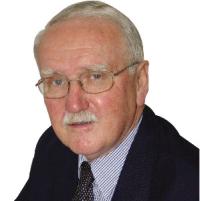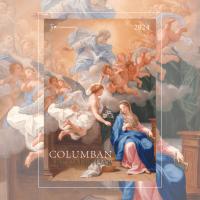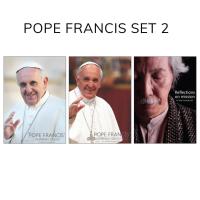
Recently we published, on the Plenary Council website, the Final Report on the Listening and Dialogue Stage of the Plenary Council, Listen to what the Spirit is saying. It is an honest and authentic document, a summary of the contributions of more than 222,000 Catholics about what they believe God is asking of us in Australia today. Some of the opinions you may support. Some you may find challenging. All are serious contributions of believers, and we must respect them.
What is marvellous about the document is that it is a unique summary of the sensus fidelium of the Australian Church. It is hard to imagine a more comprehensive way of listening to the People of God.
We know the church is not a democracy, but neither should it be a dictatorship. It works best when, as Cardinal Newman says, the magisterium and the people “breathe together”. Or as Pope Francis says when we are synodal, when we walk together, all listening to one another. Our tradition has always seen the bishops as authoritative guardians of the faith. Before Vatican II, the image was juridical. The bishops promulgated laws and taught doctrine, and the faithful were to obediently accept these laws and teachings without making any positive contribution to their development. The bishops were teachers and the laity learners.
According to Vatican II, each believer, by baptism, has a supernatural instinct or sense of the faith that allows them to recognise God’s word and to respond to it. For Pope Francis, “The sensus fidei prevents a rigid separation between an Ecclesia docens and an Ecclesia discens, since the flock likewise has an instinctive ability to discern the new ways that the Lord is revealing to the Church.” Bishops teach after listening to the sense of faith of their people. That is why Pope Francis insists on our being a synodal church, “a church which listens, which realises that listening ‘is more than hearing.’ It is a mutual listening in which everyone has something to learn. The faithful people, the college of bishops, the Bishop of Rome: all listening to each other, and all listening to the Holy Spirit, the “Spirit of truth” (Jn 14:17), to know what he “says to the Churches”
(Rev 2:7).”
Richard Gaildaretz outlines a communio model of reception.
- The people of God express their faith in liturgy, devotion, daily Christian living, and in their sharing.
- The bishops, who are also part of the people of God and close to and immersed in the life of their people, receive these expressions of faith and assess their fidelity to the apostolic tradition.
- Mostly they affirm this faith, but if the need arises, the bishops give a doctrinal teaching on the insights of the faith expressed by the community.
- The Christian faithful engage this official teaching and upon recognising its fidelity to the lived faith of the church appropriate the new formulation, and this appropriation, in turn, leads to new expressions of faith. And the circle begins again. The major difference between this communio model and the former juridical model is that the bishops are seen among the people of God dialoguing and listening to them. There is a reciprocal give and take between the bishops and their people.
In Listen to what the Spirit is saying we have a exceptional expression of the sense of the faithful. We will need patient discernment to grasp the voice of the Holy Spirit among the enthusiastic, strongly held but sometimes contradictory voices of the people of God. We will also need humility and a generous openness to all. It is too easy for us to decide who has the sensus fidei and who should be listened to. Individual believers who are committed to their spiritual lives and live will have a special insight. However, few of us live full Christian lives. We all have blind spots. We also need to listen to our prophets. We need to attend to the victims of child abuse, to gay and divorced Catholics and all those who are marginalised and find themselves in “ecclesial exile”. Given the sins of the church in recent times, there are many of these and many who have great faith.
We now move into the second phase of our Plenary Council journey, Listening and Discernment. It is encouraging that more than 222,000 of our brothers and sisters have given us their sense of the faith and the future of the Australian Church. Now we must keep talking, listening and discerning, confident that the Spirit is with us.
Columban Fr Noel Connolly is a member of the Adult Formation Team with Catholic Mission Australia and is a member of the Facilitation Team for the Plenary Council 2020.
Related links
- Read more from the current Columban eBulletin
- Click here to read from a collection of reflections on Plenary Council written by Columban Fr Noel Connolly


